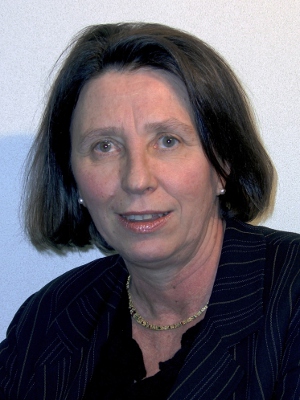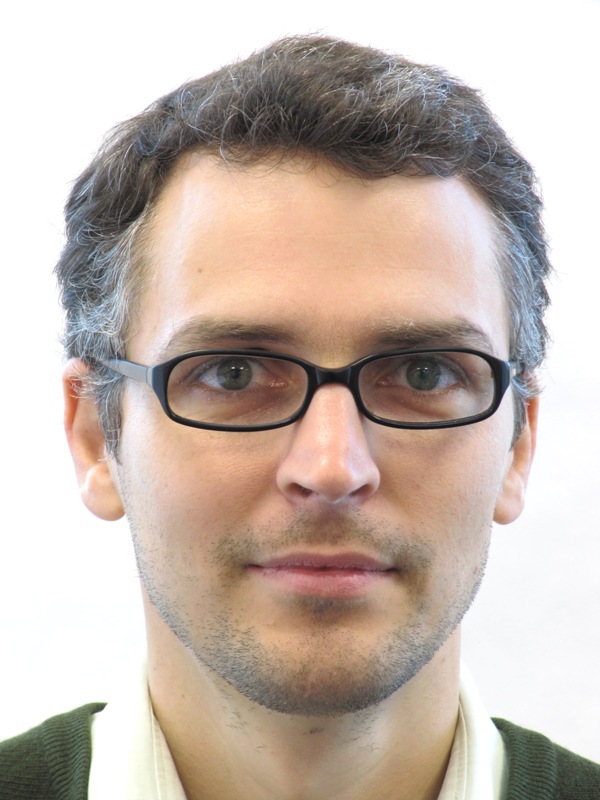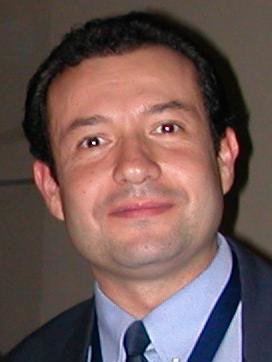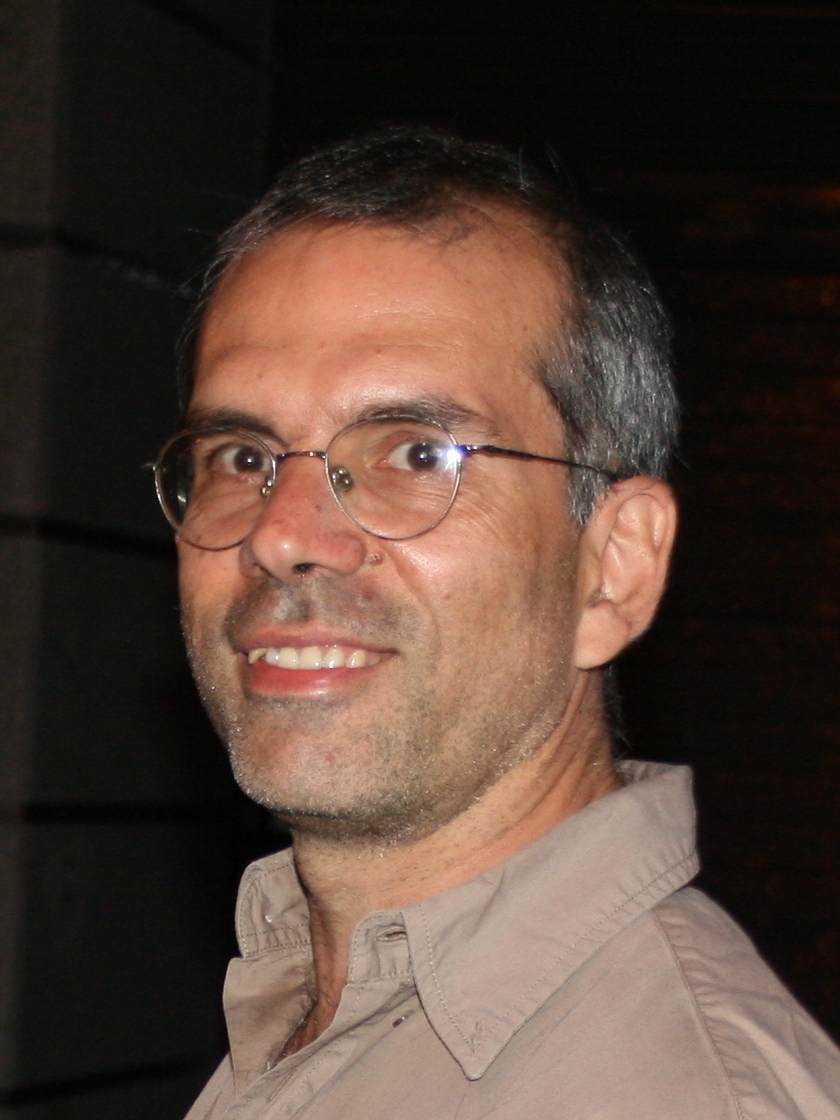| Important Dates: | |
|---|---|
| Application opens: | February 15, 2011 |
| Application closes: | March 25, 2011 |
| Notification of acceptance: | April 4, 2011 |
| Deadline for payment of registration: | May 1, 2011 |
| Arrival of participants: | July 3, 2011 |
| Start of event: | July 4, 2011 |
| End of event: | July 8, 2011 |
First European Business Intelligence Summer School (eBISS 2011)
Invited Speakers & Tutors
-

Alberto Abelló
Universitat Politècnica de Catalunya, SpainAlberto Abelló has an MSc and a PhD in computer science from the Universitat Politècnica de Catalunya (Polytechnical University of Catalonia). He is an associate professor at the Facultat d'Informàtica de Barcelona (Computer Science School of Barcelona). He is also a member of the GESSI research group (Grup de recerca en Enginyeria del Software per als Sistemes d'Informació) at the same university, specializing in software engineering, databases and information systems. His research interests are database design, data warehousing, OLAP tools, ontologies and reasoning. He is the author of articles and papers presented and published in national and international conferences and journals on these subjects.
Email: aabello@essi.upc.edu
Web: http://www.essi.upc.edu/~aabello/
Lecture: Service-Oriented Business Intelligence
Service companies represent around 70% of the GDP in the world. Thus, special attention must be paid to their characteristics. We will analyze the specificity of this sector and present specific techniques to engineering their systems (e.g. Service Oriented Architectures and Business Process Modeling). On the other hand, we will also analyze to wich extent it is possible to consider Data Warehousing just a service and use these same techniques in its engineering methods. -

Marie-Aude Aufaure
Ecole Centrale de Paris, FranceMarie-Aude Aufaure who obtained a PhD in computer science from the University of Paris 6, is full professor at Ecole Centrale Paris (MAS Laboratory) and head of the SAP Business Objects Chair in Business Intelligence. She is also scientific partner at INRIA in the Axis project. Her research interests deals with the analysis, retrieval and querying of unstructured data, and the combination of structured and unstructured data. The scientific topics developed in her team are related to semantic technologies, graphs, conceptual classification with a user-centric point of view and are applied to semantic information retrieval, question and answering over data warehouses, social networks and recommender systems (special focus on user modeling and personalization). She is reviewer for many journals and conferences and has deeply published in the fields of semantic technologies, data mining and databases
Email: Marie-Aude.Aufaure at ecp.fr
Web: http://perso.ecp.fr/~aufaurema/
Lecture: Graphs for Business Intelligence
Data manipulated in an enterprise context are structured data as well as unstructured data such as e-mails, documents, etc. Graphs are a natural way of representing and modeling such data in a unified manner (structured semi-structured and unstructured ones). The main advantage of such structure relies on (or resides in) its dynamic aspect and its capability to represent relations, even multiple ones, between objects. It also facilitates data query using graph operations. Explicit graphs and graph operations allow a user to express a query at a very high level of abstraction. This talk will introduce graph models and associated query language. We will then present an all-in-one tool for extracting and aggregating underlying graphs from relational databases. -

Yannick Cras
SAP, FranceYannick Cras is Chief Development Architect, Core BI technology at SAP BusinessObjects. As such he provides individual expertise, leadership and executive influence in the design of the core Business Intelligence technology of the company, of which he authored a number of foundation patents such as the mathematical calculation model that underlies SAP's flagship BI product, WebIntelligence. Yannick's technology interests are centered around data, calculation and query semantics, with a strong focus on devising creative solutions that merge expressive power and semantic soundness with user-friendliness in a class of products designed for non IT personnel. Yannick has been working for Business Objects, now SAP BusinessObjects, since 1995 in various technical management or leadership positions. Prior to that he worked for EDS Management Consulting Services as a Senior Consultant in the field of advanced combinatorial problem solving and Operations Research, where he devised complex optimization algorithms for clients such as Elf Atochem, Air France or SNCM. His career had started with Bull's Artificial Intelligence Development group where he co-authored and co-developed the first industrial constraint programming language Charme. Yannick holds an Engineer-Doctor degree in Computer Sciences from University Paris XI, an Engineering degree (option Applied Mathematics) from the Ecole Centrale Paris, and an Advanced Degree in Computer Sciences from University Paris VI. He is a member of the steering committee for the Business Objects BI Chair at ECP, where he regularly gives talks. Yannick is also an amateur composer, poet and songwriter.
Lecture: Why simple business questions are not that simple, and what to do about it
Business Intelligence has a goal of enabling business users with the capacity to express complex business questions or author complex KPIs or calculations directly, without resorting to costly data infrastructure projects from the IT department. Modern technologies make this goal more reachable than ever. Now, even the simplest business questions can raise quite subtle semantic issues. We are thus facing the challenge of proposing simplicity without sacrificing precision. We will elaborate about some of the semantic “traps“ that may await a business user, and about which concepts and metaphors can be offered to them to help them specify a complex query or calculation. -

Etienne Cuvelier
Ecole Centrale de Paris, FranceEtienne Cuvelier obtained a Msc in Mathematics and a Msc in Computer Science from the University of Mons (Belgium), before acquiring his PhD in Computer Science from the University of Namur in 2009. He is currently postdoctoral researcher at Ecole Centrale Paris (MAS Laboratory). His research topics in Data Mining deals with Symbolic Data Analysis, Functional Data Analysis, Graph Mining, Social Network Analysis and Formal Concept Analysis.
Email: etienne.cuvelier@fundp.ac.be
Web: http://www.fundp.ac.be/universite/personnes/page_view/01004791/cv.html
Lecture: Graph Mining
Nowadays, the notion of network becomes more and more pervasive and then, the interest for their graph representation and mining has highly increased these last years. The aim of this lecture is to introduce the main principles and techniques of graph mining, coming from the social network analysis, the data analysis and formal concept analysis. -

Marin Dimitrov
Ontotext, BulgariaMarin Dimitrov is a CTO at Ontotext - one of the leading companies providing semantic technology and text mining solutions. His responsibilities include innovation management related to scalable RDF databases, large scale data management, and text mining. Marin has a MSc degree in Computer Science from the University of Sofia. He has participated in R&D projects in the area of information extraction and retrieval, ontology management, semantic web services and business processes, cloud computing, and business intelligence.
Email: marin.dimitrov@ontotext.com
Web: http://www.linkedin.com/in/MarinDimitrov
Lecture: Triple Store & Semantic Technologies
Semantic Technologies have a great potential for improving information management in the enterprise, by lowering the cost of data integration, extracting value from unstructured content and providing means for more intelligent information discovery, search, and navigation. In this tutorial we will describe how Business Intelligence processes in the enterprise can be enhanced by Semantic Technologies, in particular, semantic data integration from multiple structured and unstructured data sources, agility of data modelling with ontologies and RDF, using an RDF data warehouse for inferring implicit facts and incremental, using semantic search for efficient discovery and exploration. -

Alexander Löser
Technische Universität Berlin, GermanyAlexander Löser joined the Technische Universität Berlin as senior scientific staff member in 2008. Before, as a Post-doc at the IBM Almaden Research Center in the Avatar project, Alexander conducted research on a search engine for emails and the IBM intranet. Later he joined SAP AG as research scientist and project manager, where he investigated techniques for searching and analyzing user generated content for the SAP Software Developer Network for more than one million SAP customers. Alexander published more than 20 papers on peer-reviewed conferences, international journals and holds 4 patent applications. His work on the Avatar Semantic Search System with IBM Research was acknowledged in the Computer World Horizon Awards 2006. Alexander's current research focuses on web scale business analytics, in particular ad-hoc analytics over unstructured content, fact extraction and fact verification in highly parallel execution environments. Learn more about Alexander's recent work at www.GoOLAP.info.
Email: Alexander.Loeser@TU-Berlin.de
Web: http://user.cs.tu-berlin.de/~aloeser/
Lecture: Web Scale Business Analytics
Today, the Web is one of the world's largest databases. Not surprisingly, much of the data is unstructured text (e.g., newsfeeds) and mostly is user generated. It is difficult to manipulate, to transfer into factual data or even to aggregate this textual data from the Web. In this lecture we introduce to fundamental problems to recognize users' search needs to receive aggregated information about objects and to generate factual tables from plain Web text. Initially, we will focus on simple examples, such as, “display everything about Airbus” or “list vendors of airplane technology.” We also started to play with complex search intentions, such as “List and compare mergers, acquisitions, competitors and products of airplane technology vendors”. In order to solve these types of queries, will need to specifically address three critical problems. First, extract entities and relations from a large corpus of Web pages that likely contain factual information. Second, recognize users' search intent. And lastly, display aggregate extracted factual in a simple, fast and in an intuitive way. As most analytical tasks this process is iterative, hence users may drill down into specific factual data or may add new facts. We illustrate our findings on the prototype GoOLAP.info. In particular, we show implementation details for executing the iterative process from above in a scalable map/reduce based infrastructure. -

Patrick Marcel
Université de Tours, FrancePatrick Marcel received his PhD from INSA Lyon in 1998. He is currently associate professor at the Computer Science Dept. of Université François Rabelais Tours (UFRT), France, where he heads the Master's Program in Business intelligence. He is also and a member of the Computer Science Laboratory of UFRT. His research interests include OLAP, data mining, query personalisation and recommendation in databases. He is the author of publications in international conferences and journals on these subjects.
Email: patrick.marcel@univ-tours.fr
Web: http://www.info.univ-tours.fr/~marcel/
Lecture: OLAP Personalization & Recommendation
The aim of this lecture is to present how popular user-centric techniques like personalisation and recommendation can be adapted to the OLAP context. The presentation begins with an overview on personalisation in databases and then introduces the approaches proposed for personalizing OLAP queries with user preferences. In a second part, a brief description of recommender systems is given. Then the talk focuses on the techniques proposed for recommending queries in a database or OLAP context. In particular, it explores how query logs and/or user profiles can be leveraged to suggest queries to the user. -

Chahab Nastar
SAP, FranceChahab Nastar heads up Business Intelligence research at SAP. Previously, he was a successful entrepreneur in computer vision software, as well as the head of a research group on multimedia indexing at INRIA. Chahab graduated from Ecole des Ponts ParisTech (Engineering'91, PhD'94) and is a former fellow of the MIT Media Lab.
Lecture: The Business Web
-

Stefano Rizzi
Università di Bologna, ItalyStefano Rizzi received his Ph.D. in 1996 from the University of Bologna, Italy. Since 2005 he is Full Professor at the University of Bologna, where he is the head of the Business Intelligence Group and teaches Data Warehousing and Software Engineering. He has mainly published in the fields of data warehousing and pattern recognition. He is member of the Steering Committee of DOLAP, and General Co-Chair of the 31st International Conference on Conceptual Modeling (ER 2012). His current research interests include data warehouse design and business intelligence, in particular multidimensional modeling, OLAP preferences, and collaborative business intelligence.
Email: stefano.rizzi@unibo.it
Web: http://www-db.deis.unibo.it/~srizzi/
Lecture: Collaborative Business Intelligence
To meet the new, more sophisticated needs of decision makers, a new generation of BI systems has been emerging. In the talk we will focus on one of the enabling technologies for this new generation, namely distribution. In particular, to support complex business scenarios where multiple partner companies cooperate towards a common goal, we will outline a distributed architecture based on a network of collaborative, autonomous, and heterogeneous peers, each offering monitoring and decision support functionalities to the other peers. Then we will discuss some issues related to OLAP query reformulation on peers, showing how it can be achieved using semantic mappings between the local multidimensional schemata of peers. -

Françoise Soulie Fogelman
KXEN, FranceFrançoise Soulie Fogelman is responsible for leading KXEN innovation program, working with Research &, Development, Product development, Sales and Marketing to help promote KXEN's offer. She is also in charge of managing KXEN's University Program. She has over 30 years of experience in data mining and CRM both from an academic and a business perspective. Prior to KXEN, she directed the first French research team on Neural Networks at Paris 11 University where she was a CS Professor. She then co-founded Mimetics, a start- up selling products and services using neural network technology, and became its Chief Scientific Officer. After that she started the Data Mining and CRM group at Atos Origin and, most recently, created and managed the CRM Agency for Business & Decision, a french IS company specialized in Business Intelligence and CRM. Ms Soulie Fogelman holds a master's degree in mathematics from École Normale Supérieure and a PhD in Computer Science from University of Grenoble. She was advisor to over 20 PhD on data mining, has authored more than 100 scientific papers and books and has been an invited speaker to many academic and business events.
Web: http://www.kxen.com/index.php?option=com_content&task=view&id=147&Itemid=808
Lecture: Data Mining and Social Networks, an industrial perspective
The lecture will first introduce the practical aspects of data mining projects in industry. It will show, on real cases, how the ever increasing volume of data and the faster pace of the economy impose on data mining practices very hard constraints in terms of scalability, automation and productivity. Then the lecture will present the recent developments in using data mining on “networked data“, that is on data which can actually be represented as a social graph. It will show how KXEN's approach allows building and analyzing very large social networks (tens of millions of nodes) and will illustrate this approach with real-world applications in telecommunications and credit card fraud. -

David Trastour
SAP, FranceDavid Trastour is a Portfolio and Practice Manager for the Business Intelligence (BI) Practice at SAP Research. The BI Practice is currently involved in more than 10 EU and nationally funded projects. His research interests gravitate around the development of innovative techniques for business intelligence, decision support systems and predictive analytics. Prior to SAP Research, David was affiliated to HP Labs where he applied mathematical optimization, statistics and visualization techniques to improve decision making in IT service management. David Trastour has published extensively and has been granted patents in the domains of IT service management and e-commerce. He is regularly taking part in the technical program committees of internationally renowned conferences and workshops. David received his diploma in Computer Science from Ecole Nationale Supérieure de Techniques Avancées (ENSTA ParisTech) in 1996.
Lecture: Extracting semantic networks from BI reports
Business Intelligence tools aim at providing business users with relevant data in order to guide decision making. However, for complex reports with aggregations on multiple heterogeneous data sources and with complex calculations, IT departments must be involved to support the business user in the technical aspects (such as writing queries). We will describe an experimental system that leverages semantic technologies to facilitate the search and recommendation of reports, aiming at by-passing the need for IT. First, we define a BI report ontology, we then describe a harvester that builds a semantic representation of all report structures. Finally, we define a similarity measure to compare reports or parts of reports, and use it in a recommender system. -

Juan Trujillo
Universidad de Alicante, SpainJuan Trujillo is a Full-time Professor at the Department of Software and Computing Systems in the University of Alicante (Spain) and the leader of the Lucentia Research Group. His main research topics include Business Intelligence applications, Business Intelligence 2.0, data warehouses' development, OLAP, data mining, UML, MDA, data warehouses' security and quality. He has also participated in the official registration of different tools related to Data Warehouse modelling. He has advised 9 PhD students and published more than 150 papers in hihgly conferences and international journals. He has also been co-editor of five special issues in different journals. He has also been PC member of different events and journals such as ER, CIKM, ICDE, DOLAP, DSS, JDM, or DKE, and PC Chair of DOLAP'05, DAWAK'05-'06 and FP-UML'05-'09.
Email: jtrujillo@dlsi.ua.es
Web: http://www.lucentia.es/en/miembros.html
Lecture: Business Intelligence 2.0
Since the early nineties, Business Intelligence (BI) applications, based on data warehouses, allowed business people to acquire useful knowledge from the internal company data by using different front-end tools such as reporting tools, OLAP tools or data mining applications. Recently, there is a common agreement in that BI applications should not only limit their analysis to the data inside one company. Increasingly, they also source their data from the outside, i.e., from the Web, and complement company-internal data with value-adding information from the Web by using different web-based systems such as Question Answering Systems or social network's analysis, or taking advantage of the Semantic Web. Therefore, nowadays we mostly talk about Business Intelligence 2.0. In this talk, we will analyse how classical Business Intelligence applications should evolve to the new BI 2.0 by (i) feeding the classical data warehouses from the data coming from the currently fashionable web systems, and (ii) moving BI applications to the Web 2.0. -

Alejandro Vaisman
Université Libre de Bruxelles, BelgiumAlejandro Vaisman was born in Buenos Aires (UBA), Argentina. He received a BA degree in Civil Engineering, a BA in Computer Science, and a PhD in Computer Science from UBA, and he has been a post-doctoral researcher at the University of Toronto. He is a Professor at UBA since 1994. He has been Vice-Dean of the School of Engineering and Information Technology at the University of Belgrano, Argentina in 2001 and 2002, and Vice-Head of the Computer Science Department at UBA. He was a visiting researcher at the University of Toronto, Universidad Politecnica de Madrid, University of Hasselt, and Universidad de Chile. His research interests are in the field of databases, particularly in OLAP, Data Mining, and Geographic Information Systems, XML and the Semantic Web. He has authored and co-authored several scientific papers presented at major database and GIS conferences and journals. Between 2005 and 2010 he chaired the Masters Program in Data Mining at the Computer Science Department, UBA. He is a currently at leave from UBA, being appointed Associate Professor at the Universidad de la República, Uruguay. From June he will be working at the Université Libre de Bruxelles.
Email: alejandro.vaisman@gmail.com
Web: http://code.ulb.ac.be/code.people.php?id=992
Lecture: Data Warehouses: Next Challenges
Data Warehouses are a fundamental component of today's Business Intelligence infrastructure. They allow to consolidate heterogeneous data from distributed data stores and transform it into strategic indicators for decision making. In this tutorial we give an overview of current state of the art and point out to next challenges in the area. In particular, this includes to cope with more complex data, both in structure and semantics, and keeping up with the demands of new application domains such as Web, financial, manufacturing, genomic, biological, life science, multimedia, spatial, and spatiotemporal applications. -

Stijn Vansummeren
Université Libre de Bruxelles, BelgiumStijn Vansummeren is an Assistant Professor at the Department of Computer & Decision Engineering (CoDE) at ULB, where he teaches databases and web technologies. He obtained a Bsc in Computer Science from the Limburgs Universitair Centrum, Belgium in 1999, and a Msc in Computer Science from Maastricht University, the Netherlands in 2001. Subsequently he was a Research Assistant of the prestigious Research Foundation - Flanders until 2005, when he obtained his Ph.D. from the “transnationale Universiteit Limburg” (Belgium and the Netherlands). Prior to his move to ULB, from 2005-2009, he was a Postdoctoral Fellow of the Research Foundation - Flanders. He has published about 35 papers in top conferences and journals and is interested in provenance in scientific databases; database programming languages; the foundations and expressiveness of query languages for XML and RDF; and index structures and query processing for the Semantic Web.
Email: stijn.vansummeren@ulb.ac.be
Web: http://code.ulb.ac.be/code.people.php?id=992
Lecture: System Aspects of Data Warehouses
Because Data Warehouses often hold hundreds of gigabytes to terabytes of data, smart solutions are needed to achieve good performance. After all, analysis queries are expected to run nearly instantanious in most cases. In this lecture, we delve into the implementaton aspects involved in obtaining this query performance, with a focus on multidimensional indexes and join processing. -

Esteban Zimányi
Université Libre de Bruxelles, BelgiumEsteban Zimányi is a professor and the director of the Department of Computer & Decision Engineering (CoDE) at ULB. He is also the academic director of the Computer Science program at the Faculty of Applied Sciences. He started his studies at the Universidad Autónoma de Centro América, Costa Rica. He received a B.Sc. (1988) and a doctorate (1992) in computer science from the Faculty of Sciences at the ULB. During 1997, he was a visiting researcher at the Database Laboratory of the Ecole Polytechnique Fédérale de Lausanne, Switzerland. His current research interests include data warehouses, spatio-temporal databases, geographic information systems, semantic web and web services.
Email: ezimanyi@ulb.ac.be
Web: http://cs.ulb.ac.be/members/esteban
Lecture: Data Warehouses: Next Challenges
Data Warehouses are a fundamental component of today's Business Intelligence infrastructure. They allow to consolidate heterogeneous data from distributed data stores and transform it into strategic indicators for decision making. In this tutorial we give an overview of current state of the art and point out to next challenges in the area. In particular, this includes to cope with more complex data, both in structure and semantics, and keeping up with the demands of new application domains such as Web, financial, manufacturing, genomic, biological, life science, multimedia, spatial, and spatiotemporal applications.
- Home page
- Organization
- Participants
- Related Events
- Organized by
News
The eBISS calendar in iCal format is available.
The Get Together Event will take place on Sunday at 7:30 pm in the restaurant “La Perle d'Asie”.
Information about the accommodation at ECP was published.
The participant list was published.
Information about the hotels nearby ECP was published.



